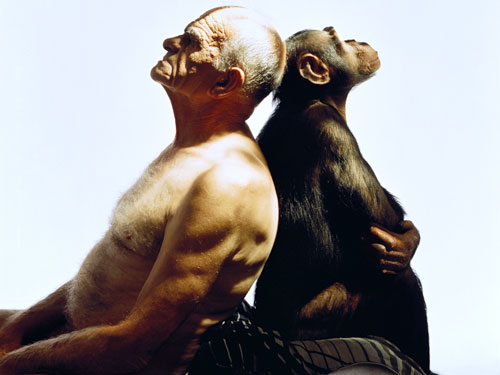Alfred Russel Wallace was the co-discoverer, with Charles Darwin, of natural selection. He wrote within a decade of the “Origin of Species” that the mystery of consciousness was proof that natural selection was not enough. His challenge still stands.
 “No physiologist or philosopher,” Wallace said, “has ventured to propound an intelligent theory of how sensation may possibly be a product of material organization, while many have declared the passage from matter to mind to be inconceivable.”
“No physiologist or philosopher,” Wallace said, “has ventured to propound an intelligent theory of how sensation may possibly be a product of material organization, while many have declared the passage from matter to mind to be inconceivable.”
He added that he felt compelled to conclude, “a superior intelligence has guided the development of man in a definite direction…the whole universe is not merely dependent on, but actually is the WILL of higher intelligences or of one Supreme Intelligence.”
Darwin wrote to him, making this quip regarding their co-discovery of natural selection, “I hope you have not murdered too completely your own and my child.”
Darwin grappled with the problem of what philosophers call ‘the mind-body problem,’ more commonly known these days as the mystery of how matter can have consciousness.
Taking an uncharacteristic shortcut, which was probably influenced by his residual Christian conditioning, he wrote in one of his early notebooks: “The soul by the consent of all is superadded. Animals not got it.”
To say “the soul is superadded” makes three basic mistakes in my view. It continues to place humans at the center and goal of creation. It sustains a supernatural dimension of the soul. And it assumes a separate intelligence that ‘superadds’ soul to humans.
I realize I’m in danger of wading into the tar pits of teleology and intelligent design. If we don’t posit a specific goal (such as man) however, and address the question of cosmic intelligence without design (and a Designer), La Brea need not take another victim.
Mystical experiencing—awareness without the movement of memory, thought and time–brings the mystery of consciousness into sharp relief. But mystical experiencing also attests, ironically, to philosopher Daniel Dennett’s point that ‘we are actually not conscious in the otherworldly way we think we are.’
As Cambridge psychologist Nicholas Humphrey puts it, consciousness generally means “we have the sense there is something substantial at the center of our psychical existence.” That’s true. But then, with false confidence, he adds, “a self that has this sense at its center is a self to be reckoned with, a self worth having.”
Without even a nod to the narcissism that is the new normal for the self in the West, Humphrey proclaims the mystery of consciousness solved: “Such a self bursts with the potential to become the principle around which we organize our mental lives.”
No wonder the psychological profession is in such trouble, given its core mission of the care and feeding of the self. But what can replace the organizing principle and premise of the self? (Hint: undivided observation and self-knowing?)
There’s a huge difference between a self to be reckoned with, and a self worth having. And Humphrey ventures down the rabbit hole by saying, “maybe all mammals and all birds have comparable experiences of consciously being there.”
Perhaps chimps have a primitive sense of self, though that hasn’t stopped humans from using them for tortuous lab experiments. However the sense of a substantial self at the center of human and chimp consciousness is not evidence of the validity and value of the self, just of the all-encompassing illusion of ‘me’ that the domination of symbolic thought in the brain generates.
Even if the self co-evolved with higher thought as an organizing principle for thought, the mystery of consciousness, which transcends the self, remains. That’s because the question of awareness beyond self and thought (that is, when thought is completely still and the self is not) means that consciousness, unlike the self, is not merely the experience of something in our minds.
I’m not referring to any sort of paranormal capacities, which are wholly secondary and unimportant to my mind. I’m referring to the experiencing of essence, the numinous, an immanent intelligence, which comes when the mind-as-thought is completely silent.
Also, I’m not positing the existence of a supernatural dimension. It isn’t necessary to accept the existence of a supernatural realm that’s beyond rational understanding. Nature and life/death (which aren’t the same thing) may give up their secrets grudgingly, but we can find out and understand anything, even if we can’t codify into knowledge everything.
At some point the need for explanation impedes the drive for understanding.
There are things we don’t understand, but which science will eventually explain. And there are things that even science must forever be completely silent about, such as the silent awareness of the sacred. Denying the experiencing of the numinous, as hardcore atheists do, is as irrational as upholding the existence of a separate Creator.
So we’re back where we started, with Darwin and Wallace feeling that natural selection is not enough.
Random activity at the quantum and physical levels, and with natural selection, may account for everything that has evolved. But it cannot ever account for the existence of silent awareness, awakened consciousness, and transcendent experiencing.
Martin LeFevre

